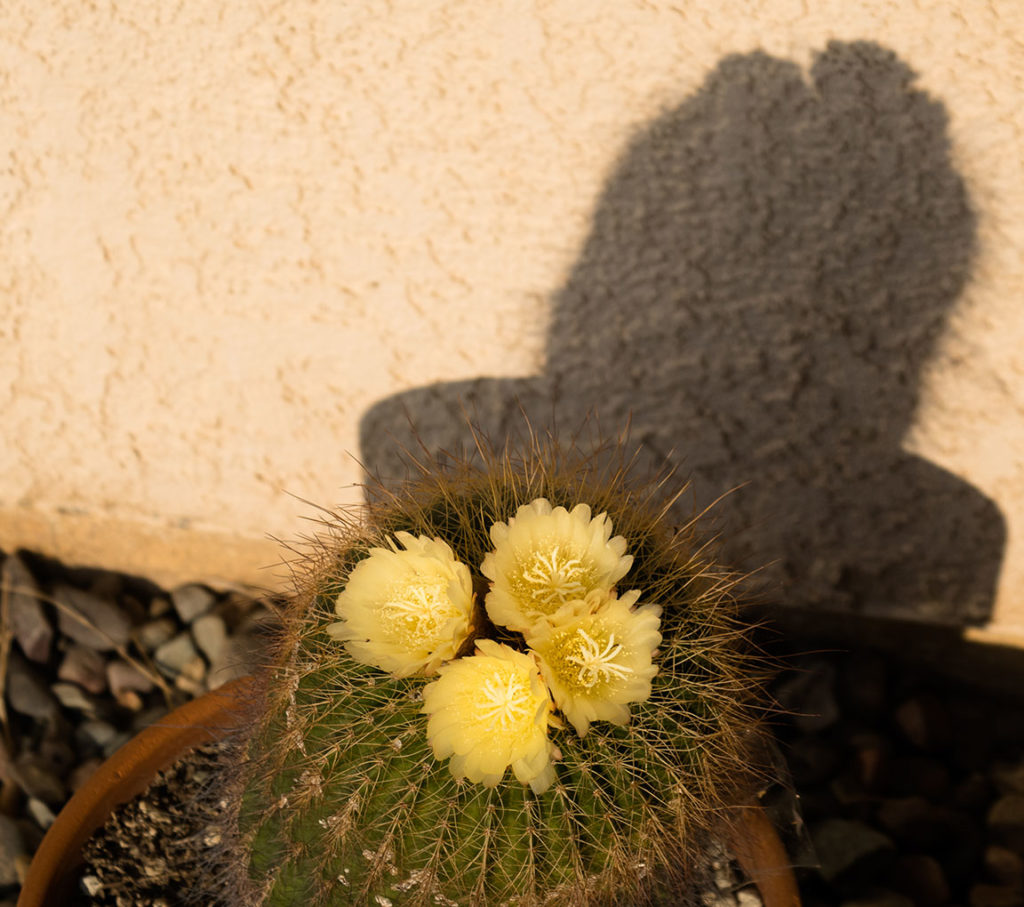Rev’d Mark B. Stirdivant, Good Shepherd Lutheran Church, Yucaipa California
✝ sdg ✝

Wild Grass
Have you ever met an indifferent farmer? I would think it would be quite difficult in that line of work not to care about what’s going on in the fields, what the weather is doing, when seed time and harvest time will arrive and so forth. To be sure, there can be a handful of bad farmers, and they are thoroughly gripped in fear and anxiety over losing everything, since they are so self-deceived that they can control everything about farming, yet when reality hits home and the natural struggles and frustrations set in, they cannot cope with it and they yearn with great longing to be rid of the whole business. Most good farmers are well aware of now “not-in-control” they really are, they do their best, do a little venting of frustration with like-minded compatriots, and proceed as best they know how, not presuming that their own efforts can manipulate too much of what’s already going to come out in the end, no matter what. To us with our busy schedules, that may look somewhat like an indifferent attitude, but in fact these good farmers are keeping their minds on the most important things, not letting them get crowded out by the side-stuff or the things they cannot control.
I think this may be a big reason why Jesus uses fishing and farming so many times to describe the work of the Church’s ministry. As former fishermen, or maybe fish harvesters, Peter, James and John as well as their dad Zebedee would have been well aware of being not-in-control of their results. Witness the first and last catch of fish that they hauled in thanks to Jesus’ miraculous words. Both times they had caught nothing all night, then boom! The jackpot of all yields. If at any time these gentlemen in the fishing vocation had imagined their techniques and personal willpower and persistence would amount to a hill of beans, when it came to bringing in fish, then utter anxiety and unbridled frustration would have taken them over.
So I then ask you: in your daily life both in your vocation and as part of Christ’s Church on earth, are you indifferent? Do you think or act in such a way sometimes that what Jesus has to say to you in His Word matters neither here nor there? Then let the parable of the sower of seeds instruct you. Because God’s true and perfect Word cannot let you remain indifferent. The seed that Christ the sower plants will sprout, but your faith will die and you risk getting thrown into the eternal fire if you keep yourself disconnected from the nourishment He provides you. Indifference to doctrine like that is downright dangerous for your soul.
Or is it possible that you have been overcome in anxiety? Do you see the things to which you look for strength falling down around you, so that it concerns you to the point of despair? Will my family hold together, should tragedy strike? Will there ever be fruitful reconciliation with that other person now that we’re avoiding each other? Will the Church live on to see another day in the increasingly tenuous situations in which we find ourselves this day and age? If that is the case in your heart, then remember from the parable that the seed of God’s Word grows you know not how, and perhaps you could consider yet one more analogy, this time coming from the Apostle St. Paul.
Paul made tents, and also possibly constructed shade awnings for marketplaces and sports venues. As he traveled far and wide as an Apostle in a relatively short time, he could have paid his way at least partially by means of his first trade. Whether he continued tentmaking or not, he wrote comforting words to the Christians in the Greek city of Corinth by speaking of our life in the flesh in this present world as dwelling in a tent. Mind you, this is not the fun, temporary summer diversion that gets somebody out in nature, curled up in a sleeping bag, separated from the canopy of stars (and the occasional rain shower!) by a mere layer of Scotch-guarded cloth. Paul’s words in this context imply that a tent is an inconvenience, a lesser-desired situation than a sturdy, well-built house. People, including fathers, enjoy camping partly because they know deep down that they don’t have to remain living that way! When a tent is all you have for a long period of time, then it starts to become a burden. You then yearn for thicker walls, air conditioning, and far less biting insects.
Now, the Corinthians were facing great trials as a new church. In their young history as a Christian congregation, they had been attacked by party factions, pagan infiltration, and even a notorious sexual indiscretion within their own membership. Paul had heard all about this and wrote his two epistles to them, and perhaps some other letters, to answer their many difficulties, sometimes chastising them with divine Law, other times comforting them with the Gospel. It is clear that he could identify with what they were going through, and described it perfectly, saying, “In this tent we groan, longing to put on our heavenly dwelling…” Life wasn’t getting any easier for these new Christians, and many of them were being driven to despair because they could not control what was happening to them, and they were seeing no end in sight. They were yearning for something better than that inferior tent in which they were living.
Is that feeling any different for you? Don’t you find yourself longing for something better? Are you groaning under the burden of this inferior tent? Whether it’s the limitations of the physical body, signs of illness, handicap or age, or struggles in vocation or human relationships, or even spiritual battles against evil and falsehood; no matter what, sometimes life would seem so much better if you were rid of this temporary tent. Paul himself, especially in the epistles of his later age, spoke of his desire to depart this life and be with Christ, for that is much better (see Phil. 1:23). Yet even if it isn’t specifically death you are thinking about, there are other ways you may be tempted to try in order to grant yourself some relief.
Notice, however, the advice that Paul does give to the Corinthian congregation. He never chides them for “groaning” in their tents, that is, letting their heart pour out in prayer to God and in mutual consolation toward one another. Here he includes himself, groaning right along with them, even speaking of himself and his colleagues in ministry as “beside ourselves” or out of our minds, yet due to his office and responsibility as a preacher of the Word to his hearers, Paul knows there also comes a time when he must adopt a calmer perspective and be, so to speak, “in our right minds for your sake.” Just like the farmers and the fishermen who commiserate amongst themselves, yet when they speak to someone on the outside, such as myself, it doesn’t sound quite the same, not because they’re hiding anything from me, it’s just I wouldn’t be able to empathize quite as well as I would if I were in the same situation.
Yet there still is a warning that you should take care to note from St. Paul. In your moments of yearning and groaning in this world’s tent, you should not forget where your courage and confidence comes from. In other words, in your praying and even complaining to the Lord, don’t neglect His rock-solid promises to you in His Word. The Lord’s own personal guarantee, the deposit or down-payment toward His greater blessings that are to come, is all yours because the Holy Spirit was poured out on you when you were baptized. Because when ordinary water combined with God’s Word and was applied upon you in the name of Father Son and Holy Spirit, then your mortal and sinful being was swallowed up by Life. You were then assured of a greater dwelling, of being further clothed, that is, having a better physical body at the time of the resurrection of the dead, being fully rid of sin for good, once this short time of battle against the flesh comes to its completion.
When you forget these wonderful things, you lose your God-given confidence, and you try to fill its place with a self-centered or idolatrous confidence in something other than God. You prefer make your home in the body, the temporary, worldly things that you can see and experience here and now, but due to your sinful nature, when you’re at home in the body, you are away from the Lord. In a sudden urge to control whatever is happening to you, you end up either deceiving yourself, throwing your hands up in despair, or retreating into a numbing indifference. For whether it is indifference or anxiety, it is still the same problem, the same sinful rebellion we stage against God and choose our own way. Even upstanding, well-meaning Christians may think they need to work harder at cultivating a holy life in themselves, but the sin they keep seeing at the worst possible times creeps out and the devil uses it to accuse and cause further frustration and discouragement. Just ask the fishermen and farmers how tough it is to stay positive. Maybe this has affected you at certain times in your life.
But do not fear. God has prepared you for this very thing. Do not doubt that He Himself has washed you clean and pure. Confess your sins to Him, use your pastor in private confession if you want, pour out your soul in personal prayer to your heavenly Father, as Paul and even our Lord Jesus Himself tended to do. Reject walking by sight, by what you experience and feel, and return to faith and trust in your Savior, who has promised He will not let you go, despite what appearances may tell you. Keep your mind off the side details and remember the more important things. Rejoice that in Christ, and you have been “in Christ” ever since the day you were baptized, you are a new creation. You have been set free from the old, passing away world that is like an inferior tent. Rather, the new has come for you, a piece of the future heavenly dwelling laid out on this table for you to eat and drink from the Body and Blood of Jesus your Savior. And with this confident faith in Him who died for all, you also have been given true Christian love for all. It is impossible as a new creation merely to live for yourself or remain indifferent, but rather you serve your neighbor, not because you need to do these things to please God, but because it is now your greatest honor that as a forgiven sinner whether farmer, fisher, tentmaker, or baptized Christian, you are perfectly pleasing to God, and you are headed from this earthly tent to a heavenly dwelling, a house not made with hands.
In the Name of the Father and of the ✝ Son and of the Holy Spirit.

Green Altar Parament
Readings:
Ezek. 17:22–24 I, the LORD, have brought down the high tree and exalted the low tree
Ps. 1 like a tree planted by the rivers of water
2 Cor. 5:1–17 the Spirit as a guarantee … we must all appear before the judgement seat of Christ … in Christ, he is a new creation
Mark 4:26–34 as if a man should scatter seed … … a mustard seed











